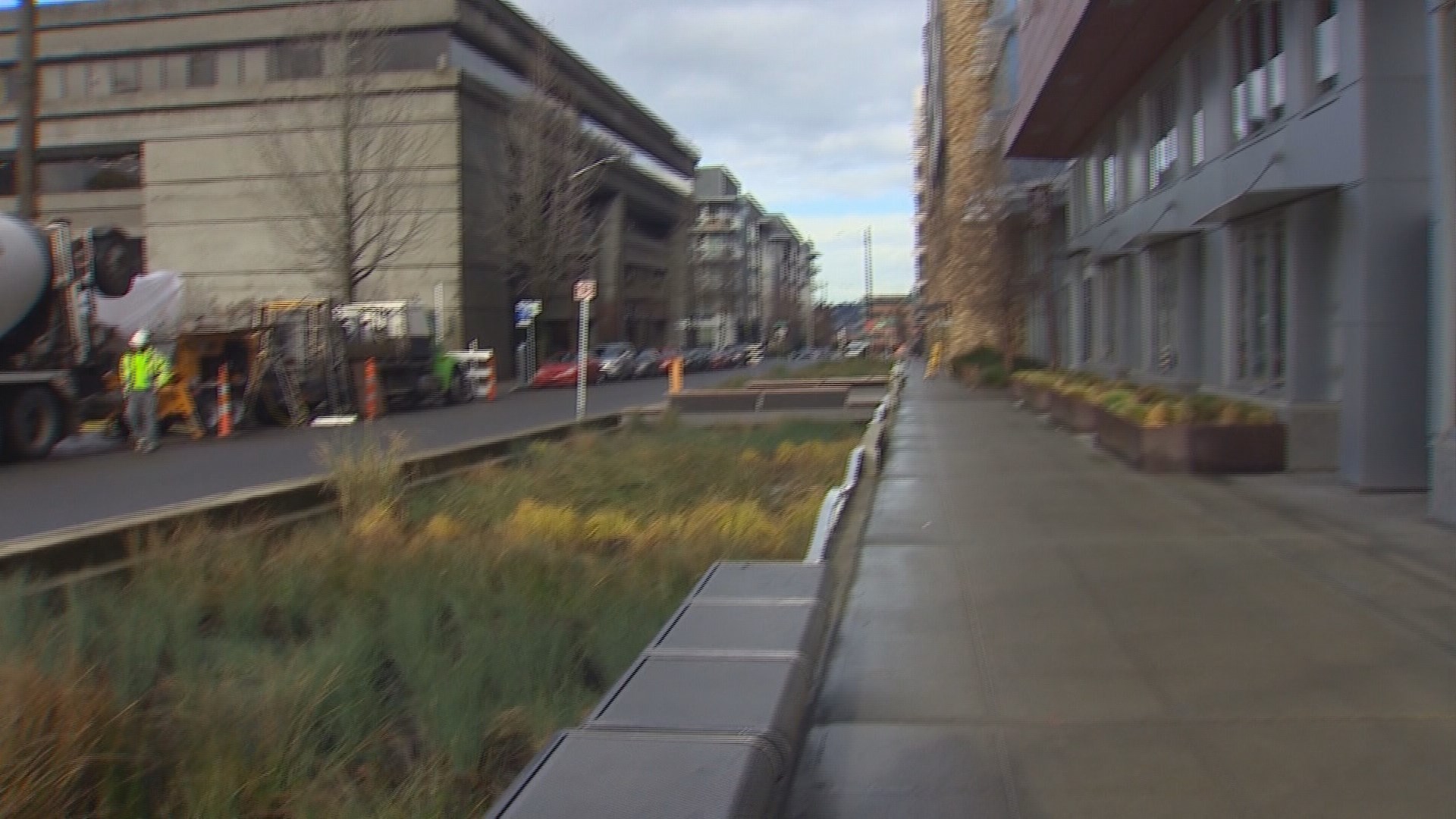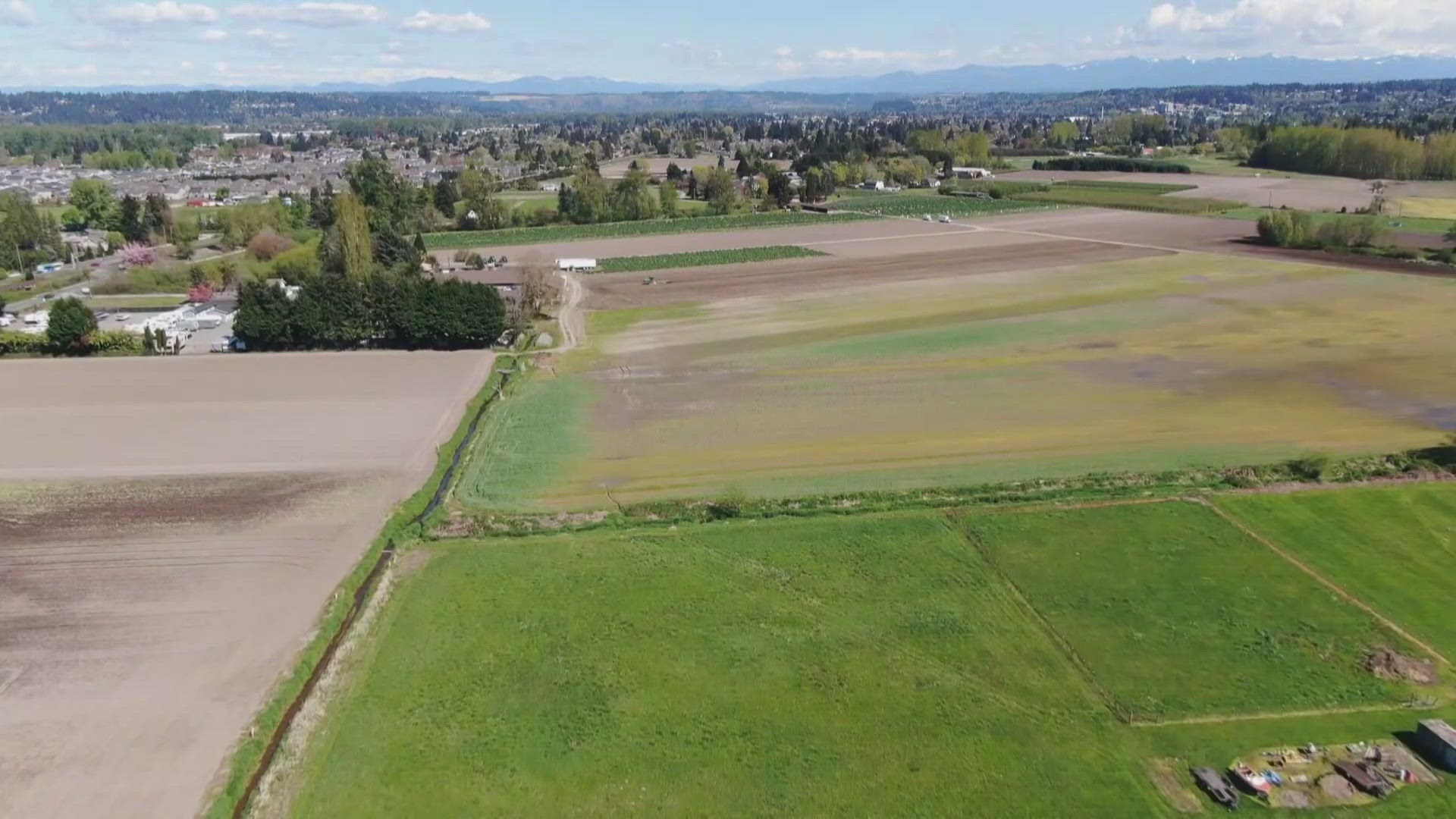SEATTLE – A pair of swales are naturally filtering polluted stormwater that runs through South Lake Union.
Thousands of vehicles move through South Lake Union every week, but something less obvious is also moving through the fast-growing Seattle neighborhood.
And it moves most dramatically when it rains.
"We pick up oils and greases from cars. We pick up copper and other heavy metals from the brakes. We also pick bacteria from walking our dogs and other animals in the area," said Seattle Public Utilities Project Manager Jason Sharpley. "All of that gets picked up by stormwater when it rains and carries it here to South Lake Union."
Stormwater run-off is the number one pollutant for Lake Union, which drains into Puget Sound.
"We used to believe stormwater was just rain. It came out of the sky, it was good, and it could go right into the water bodies," Sharpley said.
Capitol Hill is a chronic problem. It covers 660 acres. Stormwater starts flowing downhill and on its way, brings all kinds of contaminants. It once flowed directly into Lake Union, but not anymore.
About a third of it is now trapped on two blocks of dirt. The ‘Swale on Yale’ models nature's clean-up capacity. Soil, plants, and an underground biofiltration system remove pollutants. It's like an industrial-sized rain garden.
"Natural solutions to our stormwater problem like the Swale on Yale are incredibly cost-effective, just as, if not more cost-effective as more gray infrastructure-type solutions," said The Nature Conservancy Urban Partnership Director Chris Hilton.
Recent research showed that coho are particularly affected by stormwater. The chemical mixture causes them to suffocate, and in many cases, die.
"Orca numbers are diminishing, salmon are at a critical point, and we don't have a lot of time to treat this problem," Hilton said.
There are two swales right now, and two more expected next year. They'll treat about 200 million gallons of water each year and remove more than half the pollutants.


